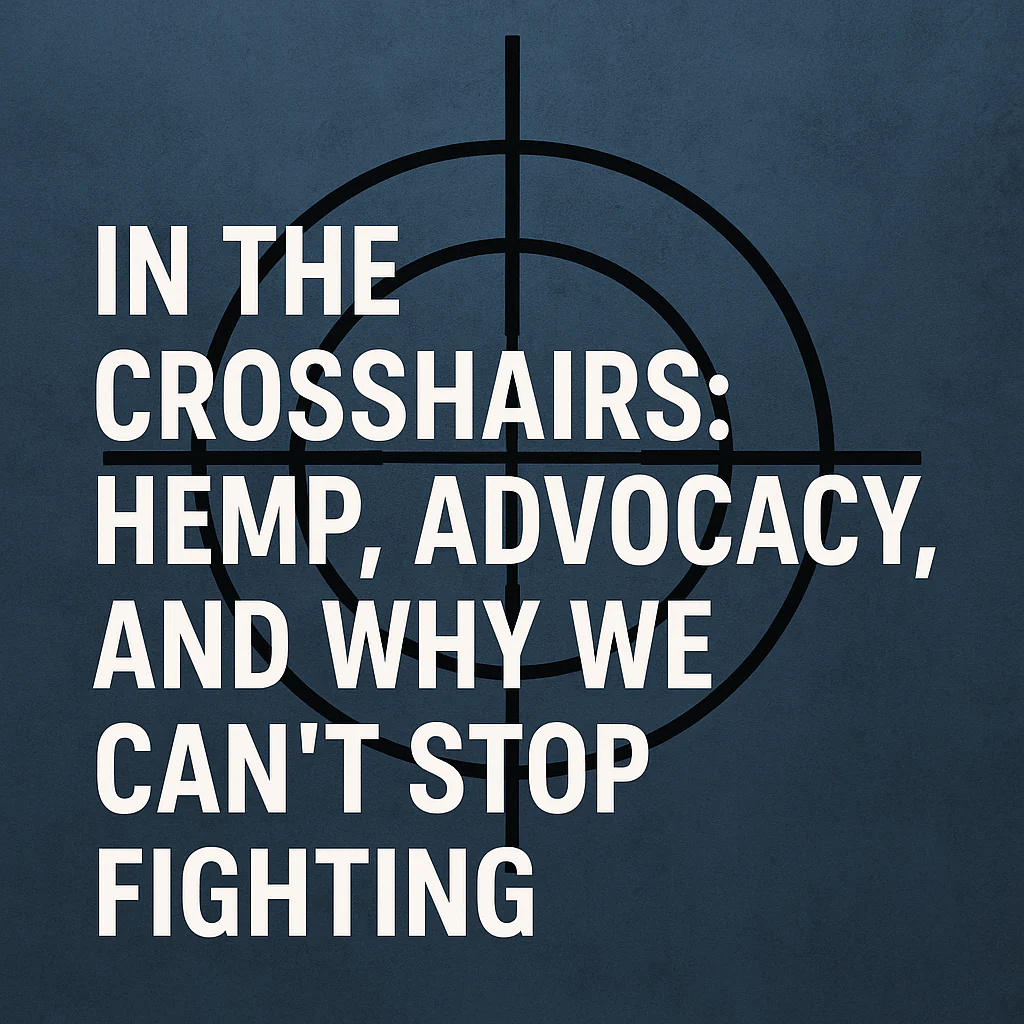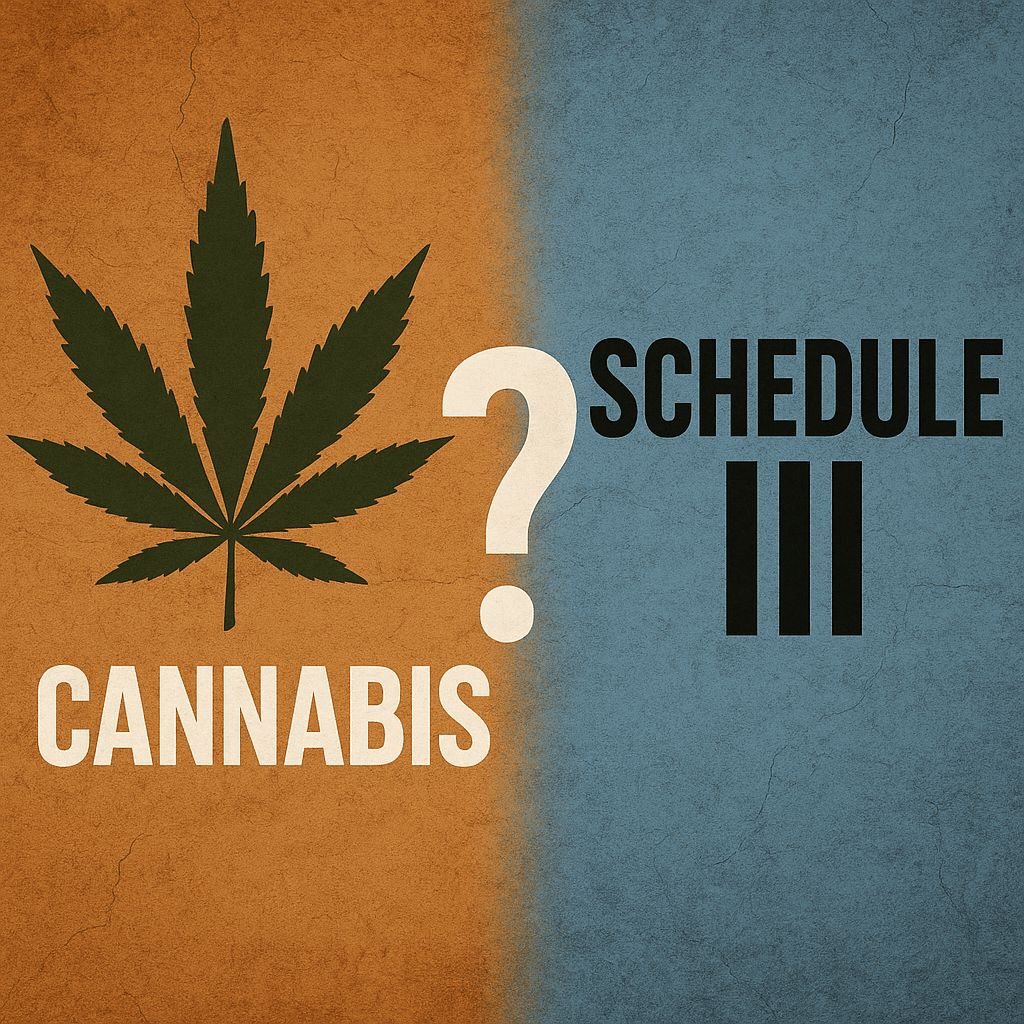The hemp industry is in crisis. Six years after the 2018 Farm Bill legalized hemp and unleashed a wave of innovation, farmers, retailers, and manufacturers now face an existential threat.
Congress is in the middle of budget negotiations, and tucked into the appropriations process are proposals that could redefine hemp in a way that bans almost every hemp-derived THC product on the market. Prohibitionist lawmakers, joined by powerful allies in the medical marijuana and alcohol industries, are pushing hard to shut down hemp intoxicants under the guise of consumer protection.
On the other side, a coalition of eight Democratic senators, joined by longtime hemp ally Senator Rand Paul (R-KY), are demanding a different approach: regulate hemp responsibly rather than banning it outright.
The stakes could not be higher. If prohibitionist language makes it into law, hemp companies could lose federal protections, be forced into compliance with IRS §280E, and see their businesses collapse virtually overnight.
This is the story of how we got here, who is fighting for hemp, who is fighting against it, and why states like Minnesota point the way toward a workable solution.
The Road From 2018: How Hemp Became Big Business
When Congress passed the 2018 Farm Bill, it removed hemp from the Controlled Substances Act and defined it as cannabis with no more than 0.3% delta-9 THC by dry weight.
This opened the door for hemp-derived cannabinoids:
-
CBD became a household name, sold everywhere from health food stores to gas stations.
-
Minor cannabinoids like CBG and CBN emerged as wellness ingredients.
-
Hemp-derived THC products like delta-8, delta-10, and hemp-compliant delta-9 surged in popularity, especially in states where marijuana remained illegal.
The industry grew into billions of dollars almost overnight. But the definition of hemp left gray areas that innovators exploited, creating intoxicating products that were technically legal. By 2022, gummies, vapes, and beverages with psychoactive effects were sold nationwide, often outside regulated dispensaries.
Why Hemp Is Under Attack
Today, hemp faces fire from three directions:
-
Prohibitionist politicians. Some lawmakers argue the hemp industry has spun out of control. They point to reports of minors buying intoxicating gummies at gas stations, inconsistent testing, and products designed to mimic candy. For them, the solution is simple: ban it.
-
Medical marijuana operators. Licensed cannabis businesses are hamstrung by state taxes, licensing fees, and the crushing federal tax code §280E. Meanwhile, hemp companies operate without these burdens and can ship across state lines. Marijuana operators see hemp intoxicants as unfair competition and are lobbying Congress to shut them down.
-
Big Alcohol. Perhaps the most surprising opponent is the alcohol industry. Low-dose THC beverages are cutting into beer and spirits sales. In states like Minnesota, THC seltzers are outselling light beer in some liquor stores. Alcohol lobbyists fear the rise of cannabis as a social drink replacement and are quietly pressing for restrictions.
Together, these forces have created a potent coalition against hemp.
The Prohibitionist Playbook
The vehicle for prohibition is deceptively simple: appropriations riders.
Draft language would redefine hemp to exclude any product containing “quantifiable THC.” At first glance, this seems like a small tweak. In reality, it would:
-
Eliminate intoxicating hemp products like delta-8, HHC, and hemp-derived delta-9.
-
Ban many full-spectrum CBD products that naturally contain trace THC.
-
Collapse interstate commerce protections, leaving hemp subject to the same federal restrictions as marijuana.
-
Trigger 280E tax exposure, crippling hemp businesses financially.
Leading the charge is Senator Mitch McConnell (R-KY). Once hailed as hemp’s champion for shepherding the 2018 Farm Bill, McConnell has turned on the industry, framing hemp intoxicants as an unintended loophole that must be closed.
He is joined by House Republicans who see hemp as a liability and political headache. With youth safety concerns dominating headlines, prohibition is being packaged as a public health measure—even though it’s as much about protecting marijuana and alcohol market share as it is about kids.
Hemp’s Defenders in Congress
Thankfully, hemp is not without allies.
Eight Democratic senators—Ron Wyden (D-OR), Jeff Merkley (D-OR), Jon Tester (D-MT), Tina Smith (D-MN), Kirsten Gillibrand (D-NY), Martin Heinrich (D-NM), Raphael Warnock (D-GA), and Jacky Rosen (D-NV)—sent a letter urging leadership to regulate hemp rather than ban it.
Their vision includes:
-
Age-gating sales at 21+.
-
Third-party testing for potency and contaminants.
-
Labeling and packaging standards to protect consumers.
-
Banning products designed to appeal to children.
-
Prohibiting synthetic conversions that mislead consumers.
This approach mirrors how alcohol, tobacco, and marijuana have been regulated: by imposing safeguards, not prohibition.
Meanwhile, Senator Rand Paul (R-KY) has continued to fight for hemp. Unlike McConnell, Paul sees hemp as vital to Kentucky farmers and small businesses. He has warned that prohibitionist language could sneak into appropriations “within the next two weeks,” catching the industry off guard.
The Appropriations Trap
The biggest danger lies in timing. Appropriations bills are must-pass. To keep the government funded, lawmakers rush them through—often with dozens of riders attached.
Even though the Senate removed prohibitionist language earlier, it can easily be reinserted during the House-Senate conference process. Once included in the final bill, it becomes law. There’s no standalone debate, no separate vote, no time for the hemp industry to rally.
This means the fate of hemp could be decided in a matter of days, without warning.
What Happens to State Hemp Programs?
States like Minnesota, Tennessee, and Maryland have built regulated hemp markets. Minnesota’s 2022 hemp law was hailed as the most responsible in the country. It created a framework with:
-
5mg THC per serving, 50mg THC per package cap.
-
21+ age requirement.
-
Mandatory testing and labeling.
-
Packaging rules to prevent child appeal.
Other states followed Minnesota’s lead, creating adult-use hemp programs that coexisted with marijuana markets.
But if Congress redefines hemp, these programs are immediately undermined. States may still allow sales, but without federal protection:
-
Interstate commerce collapses. Shipping becomes illegal.
-
Banking and insurance vanish. Financial institutions won’t touch products deemed federally illegal.
-
280E kicks in. Businesses can no longer deduct ordinary expenses, sending tax rates soaring.
-
Enforcement risk rises. Even compliant state businesses could face federal scrutiny.
State legality would no longer provide a shield.
The 280E Time Bomb
One of the least understood but most devastating consequences of prohibition is IRS §280E.
280E bars businesses involved with Schedule I or II controlled substances from deducting normal expenses. For marijuana businesses, this means paying taxes on gross income rather than profit. Effective tax rates can exceed 70%.
Hemp businesses have avoided 280E because hemp is federally legal. If Congress reclassifies hemp intoxicants, that protection disappears. Suddenly:
-
A hemp gummy company with $5 million in sales and $4 million in expenses could be taxed on the full $5 million.
-
Retailers could lose deductions for rent, payroll, utilities, and marketing.
-
Many small businesses would become insolvent overnight.
For marijuana operators, 280E has long been a nightmare. For hemp, it would be a death sentence.
Who’s Really Behind This Push?
It’s important to name names. The prohibitionist momentum is not just about kids or safety—it’s about money and market share.
-
Medical marijuana operators have been lobbying against hemp intoxicants because they can’t compete on equal footing. Hemp products don’t face 280E, don’t pay massive state licensing fees, and can be sold in regular retail stores. MSOs want hemp shut down to drive consumers back to dispensaries.
-
Big Alcohol is threatened by hemp beverages. In Minnesota, THC seltzers are already outselling light beer in some stores. National alcohol lobbies don’t want cannabis becoming the new social drink of choice. Their solution: cut off hemp’s growth before it becomes mainstream.
-
Prohibitionist politicians like McConnell see hemp intoxicants as a loophole that undermines federal marijuana prohibition. By closing it, they appease both the cannabis industry and alcohol lobbyists while presenting themselves as defenders of public safety.
In short: hemp is being squeezed out not because it failed, but because it succeeded.
The Case for Regulation
The good news is that regulation is not only possible but already proven. Minnesota’s 2022 hemp law demonstrated that intoxicating hemp products can be managed responsibly.
-
Products were capped at 5mg per serving and 50mg per package.
-
Retail sales were restricted to 21+.
-
Testing and labeling were mandatory.
-
Packaging was designed to keep kids safe.
This approach protected consumers, preserved business opportunities, and reduced the gray market. It also laid the groundwork for Minnesota’s broader legalization of adult-use cannabis in 2023.
Instead of prohibition, Congress could adopt Minnesota’s model nationally. That would create consistency, protect consumers, and allow legitimate hemp businesses to thrive.
What Hemp Businesses Should Do Now
With so much uncertainty, hemp businesses must prepare for multiple outcomes. Here’s the survival playbook:
1. Get Regulation-Ready
-
Implement strict ID verification both in-store and online.
-
Use ISO-accredited labs and maintain full COAs.
-
Eliminate child-friendly branding and avoid medical claims.
2. Segment Your Catalog
-
Classify products into intoxicating, full-spectrum CBD, broad-spectrum, and non-cannabinoid.
-
Build contingency plans to pivot toward THC-free wellness products.
3. Manage Cash and Inventory
-
Avoid overstocking intoxicating products until appropriations are settled.
-
Stress-test finances under three models:
-
A full ban on intoxicants.
-
A zero-tolerance definition of THC.
-
A regulated finished-product regime.
-
4. Secure Partnerships
-
Proactively communicate with retailers, shippers, and payment providers.
-
Show you’re prepared for regulatory changes to reduce the risk of sudden disruption.
5. Get Political
-
Call and email your lawmakers now.
-
Share job numbers, tax contributions, and compliance efforts.
-
Advocate for a regulation-first approach modeled on Minnesota’s law.
The Bottom Line
The hemp industry is standing on a knife’s edge. On one side: prohibitionists, medical marijuana operators, and big alcohol, determined to crush hemp-derived THC to protect their own interests. On the other: lawmakers like Wyden, Merkley, Smith, Gillibrand, and Paul, who understand that regulation—not prohibition—is the answer.
If prohibition wins, hemp businesses will face product bans, loss of interstate commerce, and the crushing weight of 280E taxation. Even state programs won’t protect them.
If regulation wins, the industry can stabilize, professionalize, and grow responsibly. Minnesota has already shown the way: 5mg per serving, 50mg per package, 21+ age gating, and robust testing.
The next few weeks could decide the future of hemp in America. The industry must prepare for the worst but fight with everything it has for the best.








































